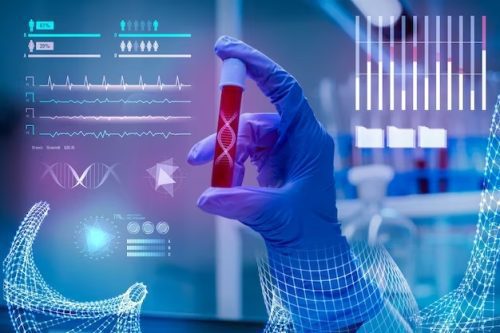Subscribe to Newsletter
Subscribe to Newsletter
Subscribe to Newsletter
Subscribe to Newsletter
Subscribe to Newsletter
Subscribe to Newsletter
Subscribe to Newsletter
Subscribe to Newsletter
Subscribe to Newsletter
Subscribe to Newsletter
Subscribe to Newsletter
Subscribe to Newsletter
Subscribe to Newsletter
Subscribe to Newsletter
Subscribe to Newsletter
Subscribe to Newsletter
Subscribe to Newsletter
Subscribe to Newsletter
Subscribe to Newsletter
Subscribe to Newsletter
Subscribe to Newsletter
Subscribe to Newsletter
Subscribe to Newsletter
Subscribe to Newsletter
Subscribe to Newsletter
Subscribe to Newsletter
Subscribe to Newsletter
Subscribe to Newsletter
Subscribe to Newsletter
Subscribe to Newsletter
Subscribe to Newsletter
Subscribe to Newsletter
Subscribe to Newsletter
Subscribe to Newsletter
Subscribe to Newsletter
Subscribe to Newsletter
Subscribe to Newsletter
Subscribe to Newsletter
Subscribe to Newsletter
Subscribe to Newsletter
Subscribe to Newsletter
Subscribe to Newsletter
Subscribe to Newsletter
Subscribe to Newsletter
Subscribe to Newsletter
Subscribe to Newsletter
Subscribe to Newsletter
Subscribe to Newsletter
Subscribe to Newsletter
Subscribe to Newsletter
Subscribe to Newsletter
Subscribe to Newsletter
Subscribe to Newsletter
Subscribe to Newsletter
Subscribe to Newsletter
Subscribe to Newsletter
Subscribe to Newsletter
Subscribe to Newsletter
Subscribe to Newsletter
Subscribe to Newsletter
Subscribe to Newsletter
Subscribe to Newsletter
Subscribe to Newsletter
Subscribe to Newsletter
Subscribe to Newsletter
Subscribe to Newsletter
Subscribe to Newsletter
Subscribe to Newsletter
Subscribe to Newsletter
Subscribe to Newsletter
Subscribe to Newsletter
Subscribe to Newsletter
Subscribe to Newsletter
Subscribe to Newsletter
Subscribe to Newsletter
Subscribe to Newsletter
Subscribe to Newsletter
Subscribe to Newsletter
Subscribe to Newsletter
Subscribe to Newsletter
Subscribe to Newsletter
Subscribe to Newsletter
Subscribe to Newsletter
Subscribe to Newsletter
Subscribe to Newsletter
Subscribe to Newsletter
Subscribe to Newsletter
Subscribe to Newsletter
Subscribe to Newsletter
Subscribe to Newsletter
Subscribe to Newsletter
Subscribe to Newsletter
Subscribe to Newsletter
Subscribe to Newsletter
Subscribe to Newsletter
Subscribe to Newsletter
Subscribe to Newsletter
Subscribe to Newsletter
Subscribe to Newsletter
Subscribe to Newsletter
Subscribe to Newsletter
Subscribe to Newsletter
Subscribe to Newsletter
Subscribe to Newsletter
Subscribe to Newsletter
Subscribe to Newsletter
Subscribe to Newsletter
Subscribe to Newsletter
Subscribe to Newsletter
Subscribe to Newsletter
Subscribe to Newsletter
Subscribe to Newsletter
Subscribe to Newsletter
Subscribe to Newsletter
Subscribe to Newsletter
Subscribe to Newsletter
Subscribe to Newsletter
Subscribe to Newsletter
Subscribe to Newsletter
Subscribe to Newsletter
Subscribe to Newsletter
Subscribe to Newsletter
Subscribe to Newsletter
Subscribe to Newsletter
Subscribe to Newsletter
Subscribe to Newsletter
Subscribe to Newsletter
Subscribe to Newsletter
Subscribe to Newsletter
Subscribe to Newsletter
Subscribe to Newsletter
Subscribe to Newsletter
Subscribe to Newsletter
Subscribe to Newsletter
Subscribe to Newsletter
Subscribe to Newsletter
Subscribe to Newsletter
Subscribe to Newsletter
Subscribe to Newsletter
Subscribe to Newsletter
Subscribe to Newsletter
Subscribe to Newsletter
Subscribe to Newsletter
Subscribe to Newsletter
Subscribe to Newsletter
Subscribe to Newsletter
Subscribe to Newsletter
Subscribe to Newsletter
Subscribe to Newsletter
Subscribe to Newsletter
Subscribe to Newsletter
Subscribe to Newsletter
Subscribe to Newsletter
Subscribe to Newsletter
Subscribe to Newsletter
Subscribe to Newsletter
Subscribe to Newsletter
Subscribe to Newsletter
Subscribe to Newsletter
Subscribe to Newsletter
Subscribe to Newsletter
Subscribe to Newsletter
Subscribe to Newsletter
Subscribe to Newsletter
Subscribe to Newsletter
Subscribe to Newsletter
Subscribe to Newsletter
Subscribe to Newsletter
Subscribe to Newsletter
Subscribe to Newsletter
Subscribe to Newsletter
Subscribe to Newsletter
Subscribe to Newsletter
Subscribe to Newsletter
Subscribe to Newsletter
Subscribe to Newsletter
Subscribe to Newsletter
Subscribe to Newsletter
Subscribe to Newsletter
Subscribe to Newsletter
Subscribe to Newsletter
Subscribe to Newsletter
Subscribe to Newsletter
Subscribe to Newsletter
Subscribe to Newsletter
Subscribe to Newsletter
Subscribe to Newsletter
Subscribe to Newsletter
Subscribe to Newsletter
Subscribe to Newsletter
Subscribe to Newsletter
Subscribe to Newsletter
Subscribe to Newsletter
Subscribe to Newsletter
Subscribe to Newsletter
Subscribe to Newsletter
Subscribe to Newsletter
Subscribe to Newsletter
Subscribe to Newsletter
Subscribe to Newsletter
Subscribe to Newsletter
Subscribe to Newsletter
Subscribe to Newsletter
Subscribe to Newsletter
Subscribe to Newsletter
Subscribe to Newsletter
Subscribe to Newsletter
Subscribe to Newsletter
Subscribe to Newsletter
Subscribe to Newsletter
Subscribe to Newsletter
Subscribe to Newsletter
Subscribe to Newsletter
Subscribe to Newsletter
Subscribe to Newsletter
Subscribe to Newsletter
Subscribe to Newsletter
Subscribe to Newsletter
Subscribe to Newsletter
Subscribe to Newsletter
Subscribe to Newsletter
Subscribe to Newsletter
Subscribe to Newsletter
Subscribe to Newsletter
Subscribe to Newsletter
Subscribe to Newsletter
Subscribe to Newsletter
Subscribe to Newsletter
Subscribe to Newsletter
Subscribe to Newsletter
Subscribe to Newsletter
Subscribe to Newsletter
Subscribe to Newsletter
Subscribe to Newsletter
Subscribe to Newsletter
Subscribe to Newsletter
Subscribe to Newsletter
Subscribe to Newsletter
Subscribe to Newsletter
Subscribe to Newsletter
Subscribe to Newsletter
Subscribe to Newsletter
Subscribe to Newsletter
Subscribe to Newsletter
Subscribe to Newsletter
Subscribe to Newsletter
Subscribe to Newsletter
Subscribe to Newsletter
Subscribe to Newsletter
Subscribe to Newsletter
Subscribe to Newsletter
Subscribe to Newsletter
Subscribe to Newsletter
Subscribe to Newsletter
Subscribe to Newsletter
Subscribe to Newsletter
Subscribe to Newsletter
Subscribe to Newsletter
Subscribe to Newsletter
Subscribe to Newsletter
Subscribe to Newsletter
Subscribe to Newsletter
Subscribe to Newsletter
Subscribe to Newsletter
Subscribe to Newsletter
Subscribe to Newsletter
Subscribe to Newsletter
Subscribe to Newsletter
Synthesis of Inorganic Encapsulation Containers for Various Industrial Applications
Engineering Tomorrow’s Solutions: Advanced Encapsulation for Industry Excellence
Virtual (Google Meet)
Self Paced
Moderate
1 Month
About
In this program, participants will explore the exciting field of inorganic container synthesis and its applications in encapsulation. Inorganic containers are nanoscale or microscale structures engineered with precision to encapsulate and shield a wide range of substances, including drugs, chemicals, nutrients, and more. The program will provide insights into the techniques and methods employed in the design and synthesis of these containers, highlighting their versatility and significance in various industrial applications. They are prepared with inorganic materials and minerals such as calcium carbonate, silica, etc., for encapsulation applications. They can vary as microcapsules, nanocapsules, micro/nanoparticles, micro/nanofibers, etc. which have porous, or hollow structures with rough textures. They have a space called lumen-space to load or store various materials using the technique called encapsulation. These materials encapsulated inorganic containers have been addressed under many diverse applications in material science and engineering. It discovers their potential in loading critical materials under many fields, improving efficiency outcomes, and addressing selective release.
Aim
The program “Synthesis of inorganic containers for encapsulation applications” aims to provide participants with a comprehensive understanding of the methods and techniques involved in synthesizing inorganic containers specifically designed for encapsulating various materials.
Program Objectives
- To understand the principles and mechanics behind inorganic encapsulation.
- To master the synthesis techniques specific to industrial applications.
- To evaluate the effectiveness of encapsulation containers in various uses.
- To develop skills in designing tailored encapsulation solutions for industry needs.
- To cultivate an understanding of the environmental impact and sustainability of encapsulation technologies.
Program Structure
Module 01: Introduction to Fundamentals of the Program
- Introduction to the concept of nanotechnology
- What is encapsulation?
- Importance and applications of encapsulation technology
- Basic encapsulation techniques at the macro, micro, and nano levels
- Advantages of using nanoscale materials in encapsulation
- Nanomaterials for Encapsulation (Types of nanomaterials commonly used in encapsulation such as nanoparticles, nanocapsules, nanofibers)
- The basic concepts of inorganic container design and their unique properties, including size, shape, and material composition
- Overview of inorganic materials used in encapsulation
- Advantages and disadvantages of inorganic containers
Module 02-Synthesis Methods and Characterization of Encapsulation Containers
- Explore the diverse methods and approaches used for synthesizing inorganic containers, such as sol-gel synthesis methods, template-based synthesis methods, and other relevant synthesis methods
- Importance of controlling container size, shape, and other relevant properties
- Understanding the importance of characterizing inorganic containers to ensure their suitability for encapsulation applications (Structural and chemical analysis/Surface properties and modifications)
- Fitting analytical techniques such as TEM, SEM, PSA/DLS, XRD, TGA, FTIR, etc.)
- Significance of characterizing nano/microcarrier properties
- Real-world examples of successful encapsulation using inorganic containers
- The success story of synthesized and characterized techniques
- Lessons learned and best practices
- Explore methods for modifying and altering the inorganic containers’ surfaces and sizes to enhance their encapsulation efficiency, stability, and compatibility with specific materials
Module 03-Encapsulation Applications and Future Challenges
- Explore the use of inorganic containers for pharmaceutical applications, with a focus on enhancing drug stability, targeted delivery, and controlled release [In-depth exploration of how nanotechnology is revolutionizing drug delivery systems/ Discussion of how
- Explore how inorganic containers are applied in the food and agriculture industries to encapsulate and protect sensitive compounds like flavors, nutrients, and pesticides [Exploration of how nanotechnology is used to encapsulate agricultural inputs like pesticides and fertilizers for efficient delivery and reduced environmental impact]
- Encapsulation applications in cosmetics (e.g., encapsulation of active ingredients) and textiles (nanotechnology applications in encapsulating textiles for enhanced functionality, such as water-repellency or antimicrobial properties)
- Discuss the role of inorganic containers in environmental remediation, pollution control, and sustainable practices
- Current challenges in inorganic encapsulation
- Emerging trends and research opportunities
- Environmental, sustainability, and ethical considerations in nanotechnology-based encapsulation
- Regulatory challenges and safety concerns associated with nano/microscale encapsulation
Participant’s Eligibility
- Undergraduate degree in Environmental Science, Chemical Engineering, or related fields.
- Professionals in the energy sector or agricultural industries.
- Individuals with a keen interest in renewable energy and sustainable practices.
Program Outcomes
- Proficiency in various encapsulation synthesis methods.
- Ability to design and implement encapsulation solutions tailored to specific industry needs.
- Insight into the sustainability and environmental impact of encapsulation technologies.
- Enhanced problem-solving and analytical skills.
- Readiness for careers in high-demand sectors of material science and industrial applications.
Fee Structure
Standard Fee: INR 4,998 USD 110
Discounted Fee: INR 2499 USD 55
We are excited to announce that we now accept payments in over 20 global currencies, in addition to USD. Check out our list to see if your preferred currency is supported. Enjoy the convenience and flexibility of paying in your local currency!
List of CurrenciesBatches
Certificate
Program Assessment
Certification to this program will be based on the evaluation of following assignment (s)/ examinations:
| Exam | Weightage |
|---|---|
| Mid Term Assignments | 50 % |
| Project Report Submission (Includes Mandatory Paper Publication) | 50 % |
To study the printed/online course material, submit and clear, the mid term assignments, project work/research study (in completion of project work/research study, a final report must be submitted) and the online examination, you are allotted a 1-month period. You will be awarded a certificate, only after successful completion/ and clearance of all the aforesaid assignment(s) and examinations.
Program Deliverables
- Access to e-LMS
- Real Time Project for Dissertation
- Project Guidance
- Paper Publication Opportunity
- Self Assessment
- Final Examination
- e-Certification
- e-Marksheet
Future Career Prospects
- Materials Scientist
- Chemical Engineer
- Product Development Specialist in Agro-chemicals
- Quality Assurance Analyst for Industrial Products
- Research Scientist in Energy Storage Solutions
- Environmental Safety and Compliance Officer
Enter the Hall of Fame!
Take your research to the next level!
Achieve excellence and solidify your reputation among the elite!
Related Courses

Artificial Intelligence for …

AI Applications in Pharmacy: …

SQL & Power BI Program: …

Data Visualization using …
Recent Feedbacks In Other Workshops
The course was more theoretical than practical.
nothing

